
Levuka: Fiji's Historical Gem
Nestled on the eastern coast of the island of Ovalau, Levuka is a town brimming with history and charm. Once the bustling capital of Fiji, this quaint and picturesque town offers a unique glimpse into the nation's colonial past. Walking through Levuka feels like stepping back in time; its colonial-era buildings, many of which are now heritage sites, stand as proud testaments to a bygone era. The town's rich history is complemented by its stunning natural beauty. Surrounded by lush green hills and the vast Pacific Ocean, Levuka is a paradise for nature lovers. The nearby Lovoni Village, located in the crater of an extinct volcano, offers a fascinating insight into traditional Fijian culture. Visitors can explore the village and learn about the customs and traditions that have been preserved for generations. Levuka is also a gateway to adventure. The surrounding waters are perfect for snorkeling and diving, with vibrant coral reefs teeming with marine life. For those who prefer to stay on land, there are numerous hiking trails that offer breathtaking views of the island's rugged landscape. Whether you're a history buff, a nature enthusiast, or simply looking to relax and unwind, Levuka has something to offer everyone.
Local tips in Levuka
- Take a guided tour to fully appreciate the historical significance of Levuka's colonial buildings.
- Visit the Royal Hotel, the oldest hotel in the South Pacific, for a true taste of Levuka's history.
- Explore Lovoni Village to gain a deeper understanding of traditional Fijian culture.
- Pack comfortable walking shoes for exploring the town and surrounding hiking trails.
- Don't miss the chance to snorkel or dive in the nearby waters, which are rich in marine life.
- Try local Fijian dishes at the town's eateries for an authentic culinary experience.
Levuka: Fiji's Historical Gem
Nestled on the eastern coast of the island of Ovalau, Levuka is a town brimming with history and charm. Once the bustling capital of Fiji, this quaint and picturesque town offers a unique glimpse into the nation's colonial past. Walking through Levuka feels like stepping back in time; its colonial-era buildings, many of which are now heritage sites, stand as proud testaments to a bygone era. The town's rich history is complemented by its stunning natural beauty. Surrounded by lush green hills and the vast Pacific Ocean, Levuka is a paradise for nature lovers. The nearby Lovoni Village, located in the crater of an extinct volcano, offers a fascinating insight into traditional Fijian culture. Visitors can explore the village and learn about the customs and traditions that have been preserved for generations. Levuka is also a gateway to adventure. The surrounding waters are perfect for snorkeling and diving, with vibrant coral reefs teeming with marine life. For those who prefer to stay on land, there are numerous hiking trails that offer breathtaking views of the island's rugged landscape. Whether you're a history buff, a nature enthusiast, or simply looking to relax and unwind, Levuka has something to offer everyone.
When is the best time to go to Levuka?
Iconic landmarks you can’t miss
Colo-I-Suva Forest Park
Experience the breathtaking beauty of Colo-I-Suva Forest Park, a tranquil oasis in Fiji featuring lush trails, stunning waterfalls, and vibrant wildlife.
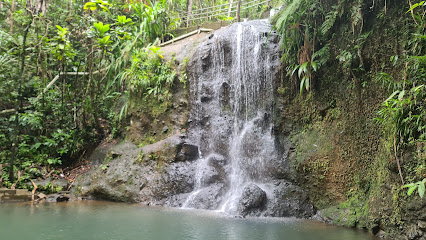
New Mavida Lodge
Experience the essence of Fiji at New Mavida Lodge, where comfort meets adventure in the historic town of Levuka.

Ovalau
Explore the stunning beauty and rich culture of Ovalau, Fiji's enchanting island paradise, offering adventure, relaxation, and unforgettable experiences.
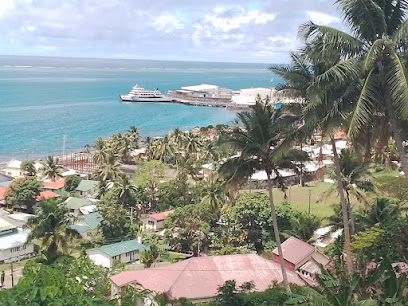
Kila World
Discover the thrill of adventure and the beauty of nature at Kila World, a premier tourist attraction in Fiji offering unique experiences for all.
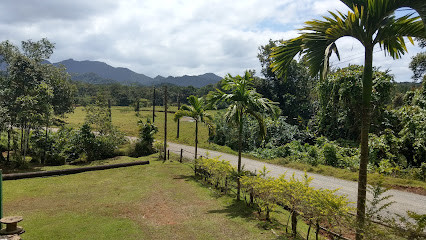
Royal Hotel
Discover the rich heritage and hospitality of the Royal Hotel in Levuka, Fiji's first capital, where history meets comfort and local culture flourishes.

Heritage Guest House
Discover the charm of Levuka at Heritage Guest House, where authentic Fijian hospitality meets unparalleled cultural experiences.
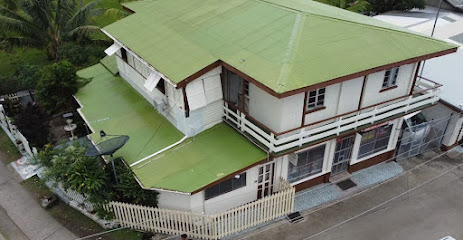
Old Capital Inn Levuka
Discover the charm of Levuka with a stay at Old Capital Inn, where authentic Fijian hospitality meets historical allure in a picturesque setting.
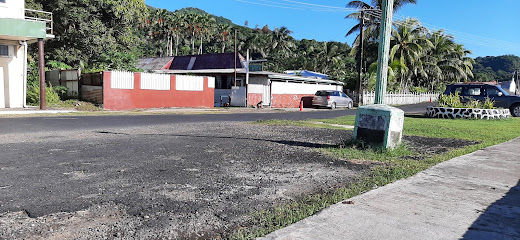
Fiji Bridge
Explore the iconic Fiji Bridge, a captivating historical landmark showcasing Fiji's architectural beauty amidst stunning natural landscapes.
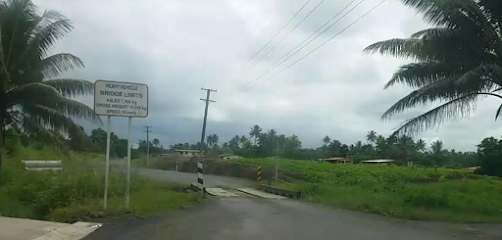
Levuka Homestay
Discover the charm of Levuka Homestay, where authentic Fijian hospitality meets breathtaking island beauty in the historic town of Levuka.

Bobo's Farm
Discover the charm of Bobo's Farm, a cozy guest house in Fiji offering an authentic island experience amidst breathtaking natural beauty.
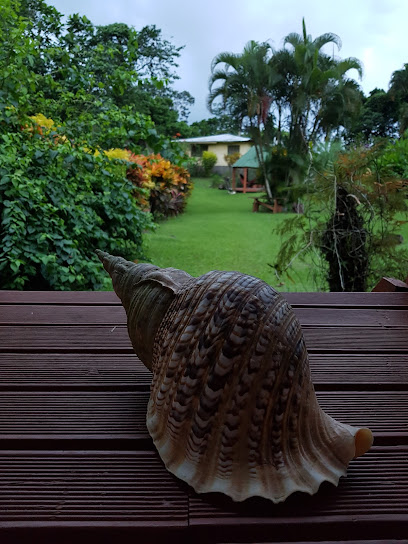
Levuka Historical Port Town
Explore Levuka Historical Port Town, a UNESCO World Heritage site rich in Fiji's colonial history and stunning natural beauty.
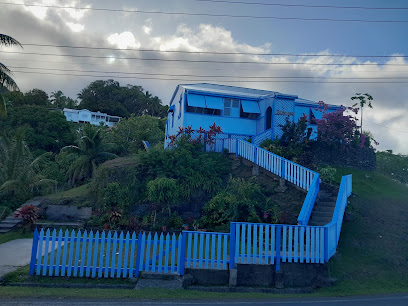
Thurston Gardens Clock Tower
Discover the historical charm of the Thurston Gardens Clock Tower, a serene landmark in Suva surrounded by lush gardens and rich heritage.
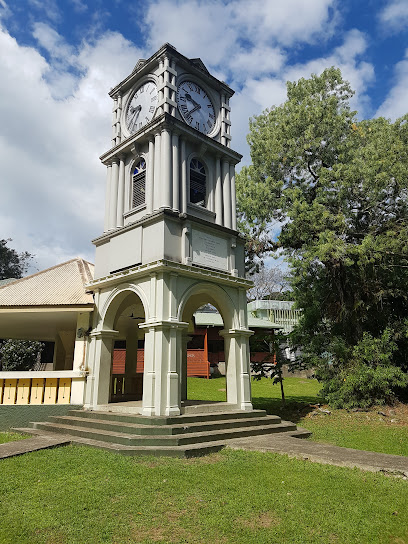
Center of Fiji
Discover the rich history and stunning beauty of Fiji at the Center of Ovalau, a landmark that embodies the essence of Fijian culture.
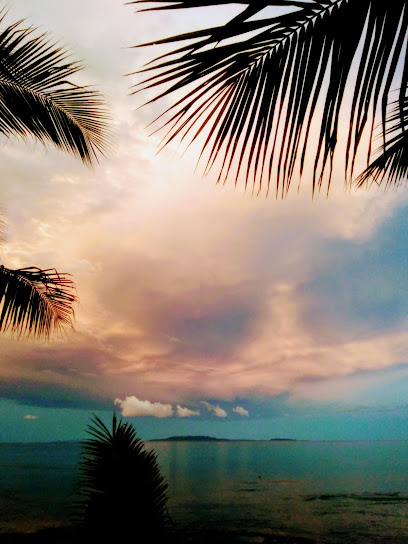
Levuka museum
Discover Fiji's captivating history at Levuka Museum, showcasing the rich heritage of the first capital of Fiji.
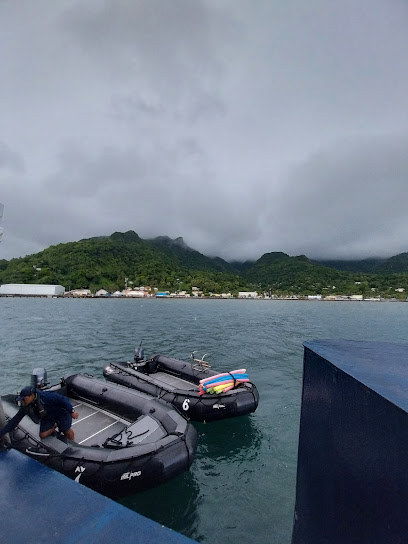
Fijian War Memorial
Explore the Fijian War Memorial in Levuka, a serene tribute to the bravery of Fiji's servicemen and women, nestled in a historically rich town.
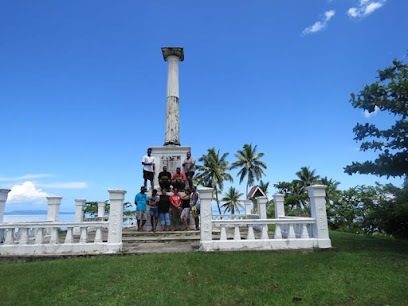
Unmissable attractions to see
My Suva Park
Escape to serenity in the heart of Suva at My Suva Park, a waterfront haven with lush greenery, walking trails, and picnic spots for all ages.
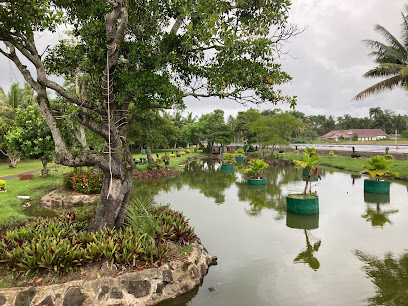
Ratu Sukuna Park
Escape to Suva's heart: Ratu Sukuna Park, a serene waterfront haven blending history, culture, and natural beauty in Fiji's capital.
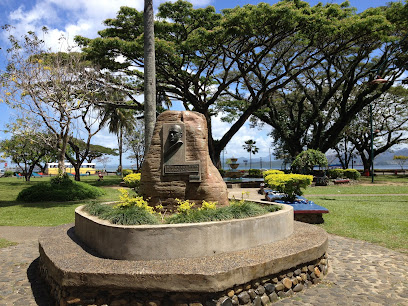
Thurston Gardens
Discover a peaceful retreat in the heart of Suva at Thurston Gardens, a botanical haven with diverse flora and historical significance.
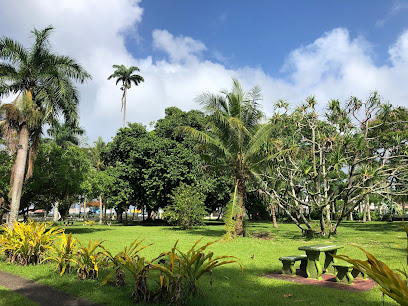
Mount Korobaba
Hike Mount Korobaba for panoramic views of Suva and a refreshing escape into Fiji's lush landscapes. A challenging climb with rewarding vistas.
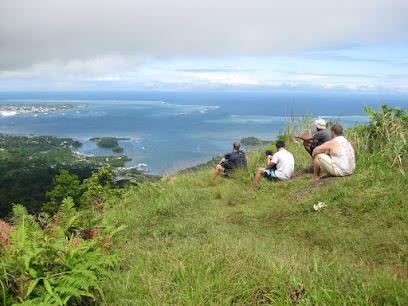
Tikaram Park
Escape to Tikaram Park in Lami, Fiji: A serene green space for relaxation, picnics, and cultural immersion on the Queens Road.
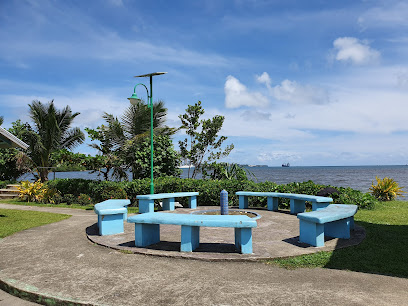
Kila World
Experience Fiji's ultimate eco-adventure: ziplines, ropes courses, jungle trails, and Fijian culture await at Kila World near Suva.
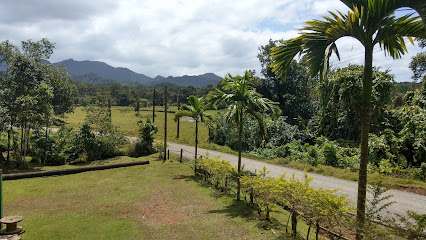
Leleuvia Island
Escape to Leleuvia Island: Discover Fiji's hidden paradise with pristine beaches, vibrant marine life, and authentic Fijian culture.
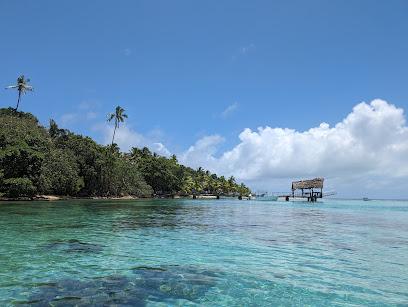
Wainadoi Water Fall
Discover Wainadoi Waterfall in Nabukavesi, Fiji: a tropical paradise with cascading waters, lush greenery, and a serene escape into nature's beauty.
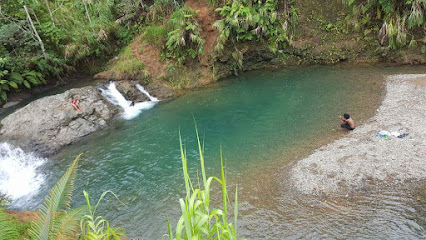
Nasese Beach
Escape to Nasese Beach in Suva for golden sands, clear waters, and a taste of Fijian culture. Your tranquil coastal getaway awaits!
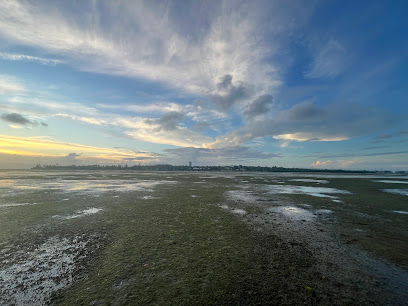
Turtle Farm
Discover Makongai's Turtle Farm: a serene sanctuary dedicated to sea turtle conservation and education in a picturesque Fiji setting.

Takashi Suzuki Garden
Discover tranquility in Suva at Takashi Suzuki Garden, a serene escape with diverse flora and peaceful pathways.
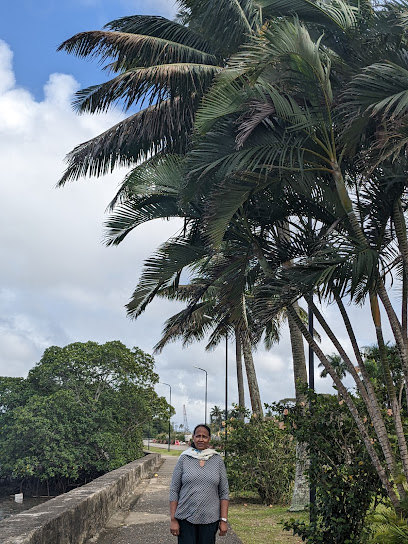
Suva Sea Wall
Experience Suva's coastal charm: stroll, jog, and soak in the stunning ocean views along the vibrant Sea Wall.
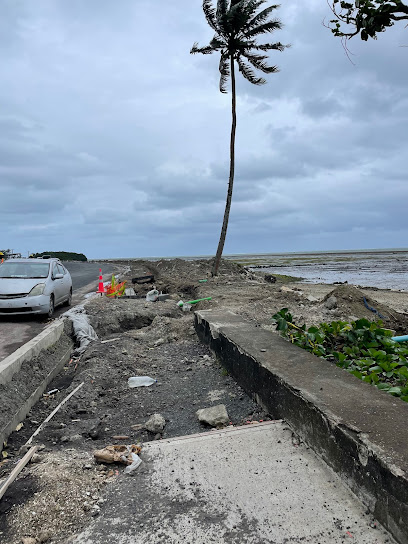
Surf and Mary
Discover coastal beauty and Fijian culture at Surf and Mary in Nasinu, your tropical escape for relaxation and adventure.

Nabukavesi Waterfall
Discover Fiji's hidden gem: Nabukavesi Waterfall, a serene escape into nature's beauty and tranquility. Perfect for relaxation and adventure.
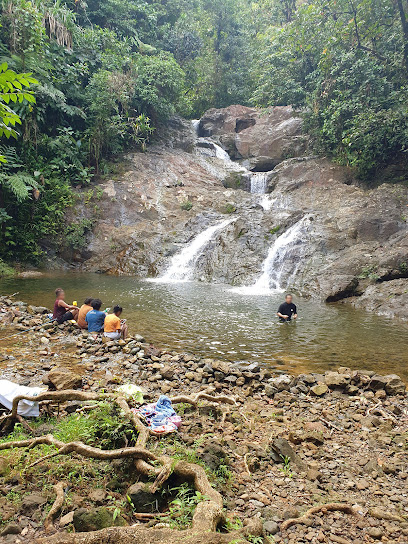
Levuka Historical Port Town
Discover Levuka Historical Port Town: A UNESCO World Heritage Site, Fiji's first capital, offering a unique glimpse into the island's colonial past.
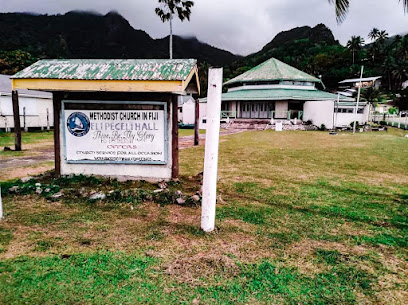
Essential places to dine
Maya Dhaba
Experience the vibrant taste of authentic Indian cuisine at Maya Dhaba in Suva, Fiji - a culinary delight not to be missed!
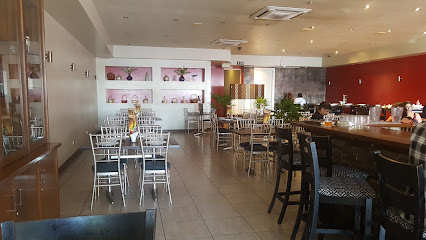
Paradiso-bar
Discover the vibrant flavors at Paradiso Bar in Suva – where Fijian hospitality meets culinary excellence.
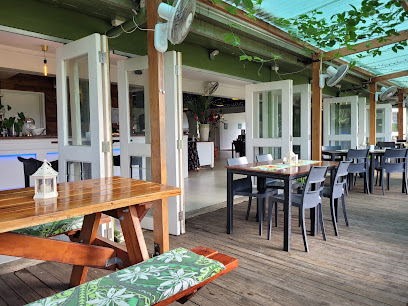
Tikos Seafood Restaurant
Experience authentic Fijian seafood at Tikos Seafood Restaurant in Suva - where fresh ingredients meet breathtaking views.
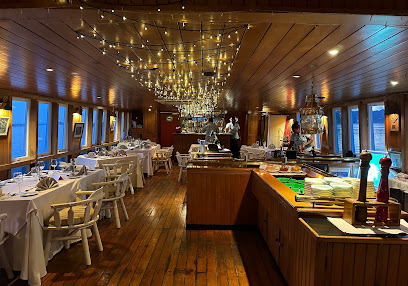
Zamzam Restaurant
Experience authentic Halal dining at Zamzam Restaurant in Suva—where fresh ingredients meet vibrant Fijian flavors.
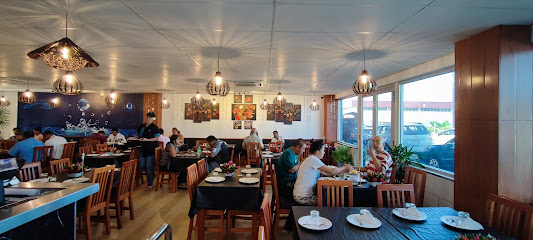
Eden Bistro & Bar (Fiji)
Discover the vibrant flavors of Fiji at Eden Bistro & Bar – where culinary excellence meets warm hospitality in Suva.
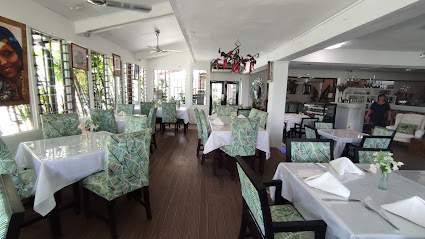
Grace Kitchen & Sunny Pizza - Votualevu
Experience authentic Fijian cuisine with a twist at Grace Kitchen & Sunny Pizza - a must-visit culinary destination in Votualevu.
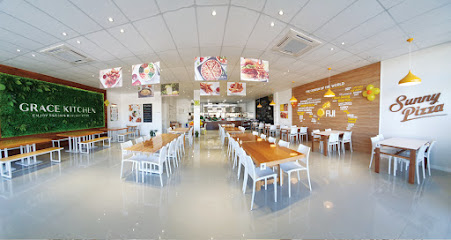
Yue Lai Restaurant
Experience authentic Chinese flavors at Yue Lai Restaurant in Suva – where tradition meets taste in every dish.
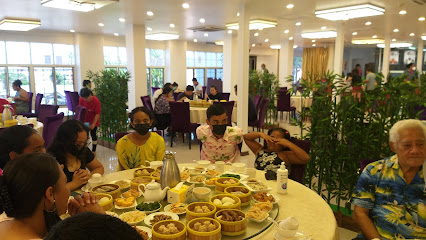
Joji's Restaurant
Experience authentic Fijian flavors at Joji's Restaurant in Suva - where culinary tradition meets modern flair.
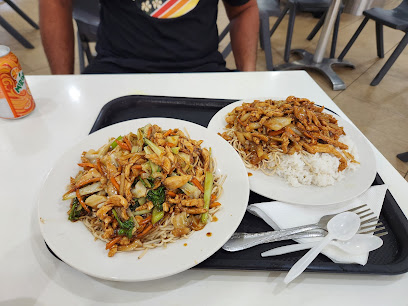
The Rotisserie
Discover the delicious fusion of traditional Fijian cuisine at The Rotisserie in Suva - perfect for dine-in or quick takeout!
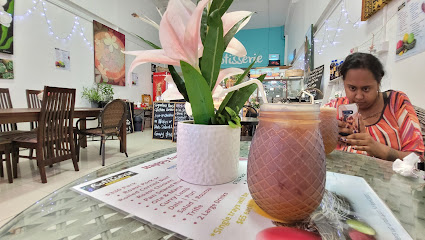
An Pho
Experience authentic Vietnamese cuisine at An Pho in Suva - where every dish tells a story!
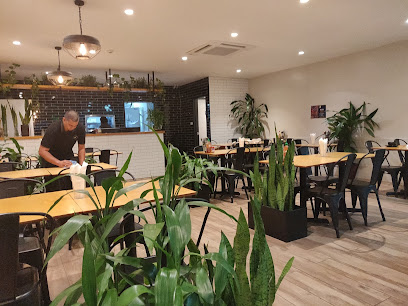
Olive Tree Wailoaloa
Experience vibrant Mexican cuisine at Olive Tree Wailoaloa in Nadi, where every dish is crafted with fresh local ingredients amidst stunning beach views.
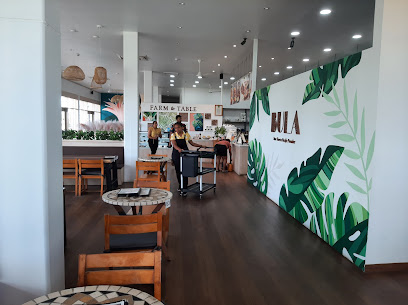
Rajdhani Restaurant
Discover authentic Fijian flavors at Rajdhani Restaurant in Suva - where every dish tells a story.
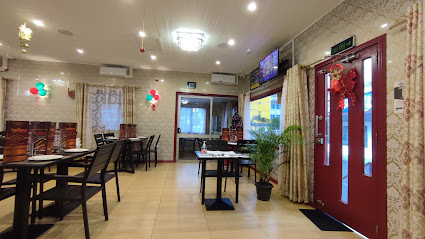
Kanu Gastropub Suva
Discover innovative Fijian cuisine at Kanu Gastropub Suva – where local flavors meet modern gastronomy in a cozy setting.
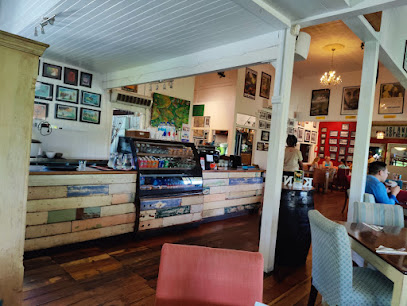
New Mavida Lodge
Discover authentic Fijian hospitality at New Mavida Lodge in Levuka - your gateway to adventure and relaxation.

Sweet Laisa's Kitchen
Experience authentic Fijian flavors at Sweet Laisa's Kitchen in Nadi – where every meal tells a story.
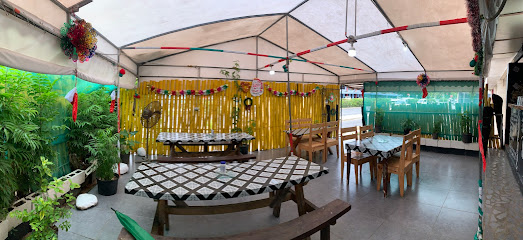
Markets, malls and hidden boutiques
Bob Store
Discover the flavors of Fiji at Bob Store, your go-to grocery stop in Nausori for fresh produce and local delights.

MH Supermarket
Experience local flavors and everyday life at MH Supermarket in Levuka, Fiji's charming grocery destination.
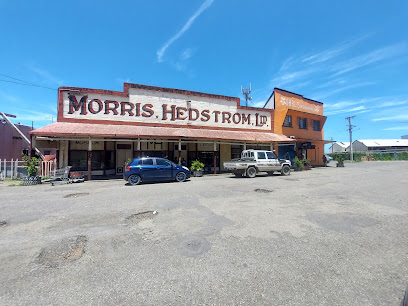
Shopaholic Fiji
Explore unique fashion and accessories at Shopaholic Fiji, a must-visit boutique in Suva for style enthusiasts and souvenir seekers alike.
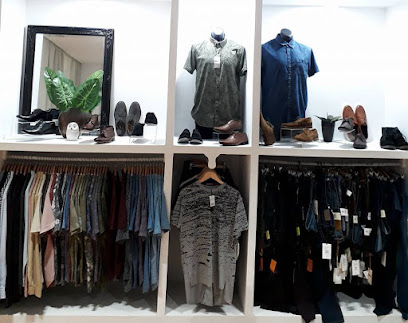
WELLCOME SUPERMARKT
Explore local flavors and essentials at Wellcome Supermarkt in Korovou, the perfect grocery store for every traveler’s needs.
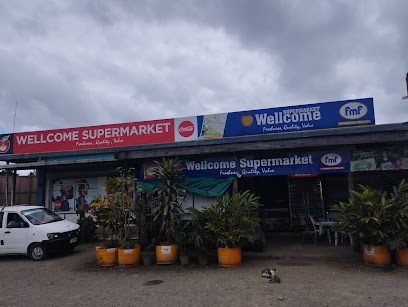
Kasavu Dairy Shop
Discover the authentic taste of Fiji at Kasavu Dairy Shop, a local favorite for fresh dairy products and artisanal goods.
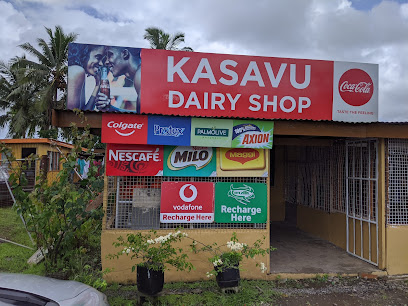
Levuka Homestay
Discover the heart of Fiji at Levuka Homestay, where authentic culture meets warm hospitality in a charming historic setting.

Treehouse Boutique
Explore the vibrant styles of Fiji at Treehouse Boutique, where fashion meets local craftsmanship in the heart of Suva.
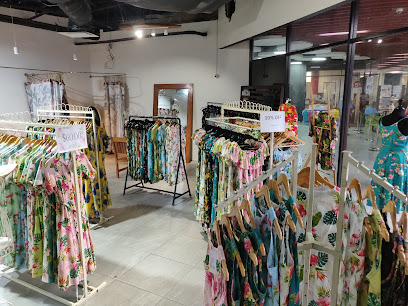
Levuka Historical Port Town
Experience the charm of Levuka Historical Port Town, a UNESCO World Heritage site showcasing Fiji's colonial past and vibrant culture.
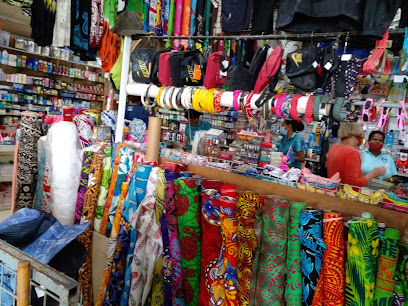
Bargain Box Premium Store
Explore stylish clothing at Bargain Box Premium Store - where affordability meets fashion in the heart of Fiji.
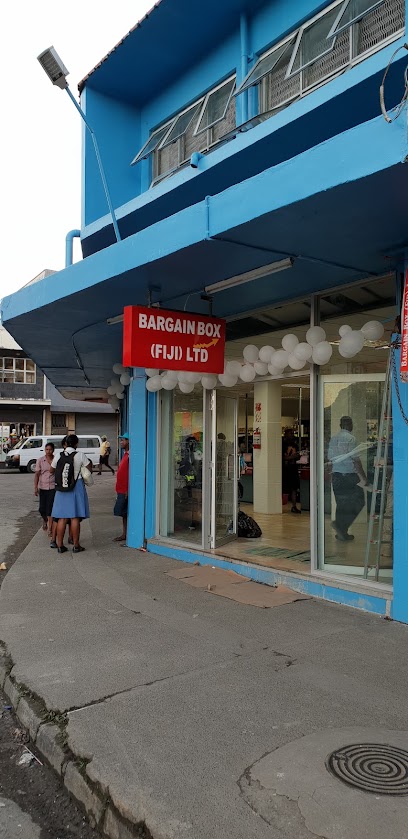
Ravneel Enterprise
Explore Ravneel Enterprise in Vunidawa for a unique shopping experience blending local culture and modern retail.
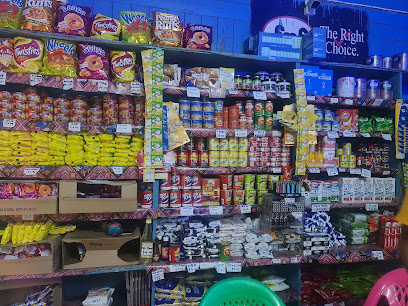
Malake Shop
Experience local culture and flavors at Malake Shop, a charming grocery store in Volivoli, Fiji, offering a wide range of products for every traveler.

Mama's kava shop
Experience the essence of Fijian culture at Mama's Kava Shop, where tradition and hospitality blend to create a unique social atmosphere.

sitara se Indian Boutique
Explore the vibrant world of Indian fashion at Sitara Se Indian Boutique in Nasinu, offering unique garments and accessories for every taste.
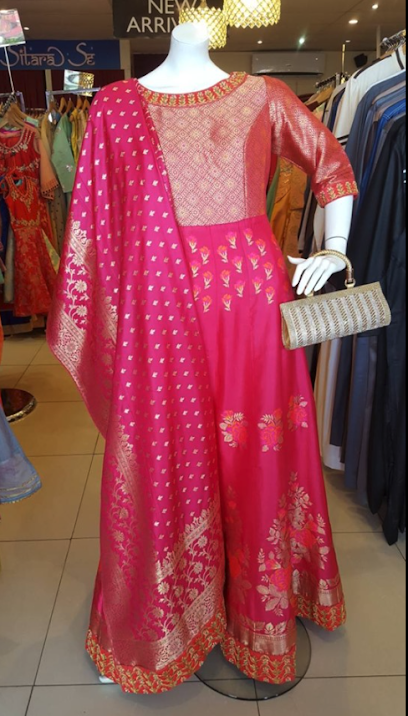
Faith Clothing
Explore unique Fijian fashion at Faith Clothing in Nausori, where local craftsmanship meets vibrant style for unforgettable travel finds.

Levuka Public School
Experience the historical charm and cultural significance of Levuka Public School, a key landmark in Fiji's educational journey.
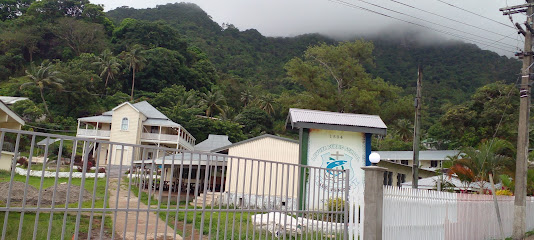
Essential bars & hidden hideouts
Royal Hotel
Experience the rich heritage and warm hospitality of the Royal Hotel, Levuka, Fiji's historic treasure offering comfort and cultural exploration.

Horizon Restaurant- Koromakawa
Discover the vibrant flavors of Fiji at Horizon Restaurant in Levuka, a culinary gem offering breathtaking views and local delights.
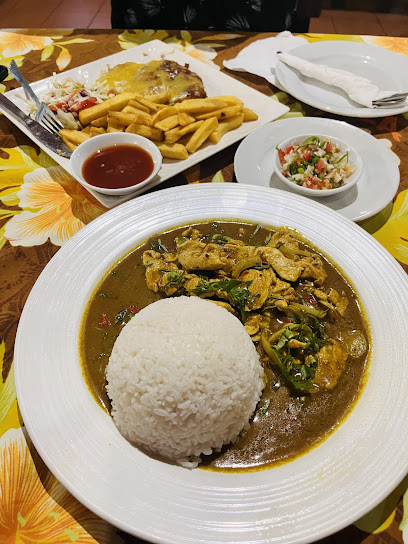
The Vintage Bar - Koromakawa Night Club
Dive into the vibrant nightlife at The Vintage Bar - Koromakawa Night Club in Levuka, where unforgettable moments and great music await every visitor.
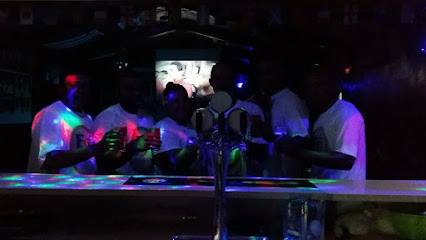
GROG BAR
Experience the vibrant culture of Fiji at Grog Bar in Nasinu, where traditional drinks and lively music create unforgettable memories.
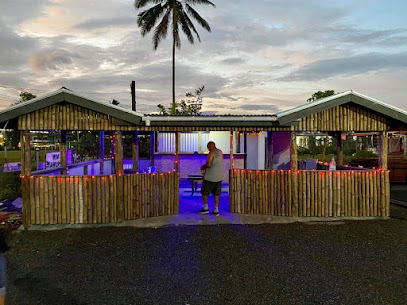
Mago Kava Bar
Experience the essence of Fiji at Mago Kava Bar, where traditional kava meets vibrant local culture in the heart of Nasinu.
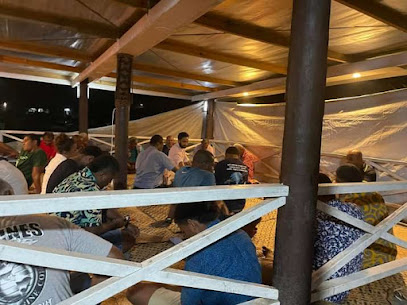
Aunty Julie's Kava Bar
Discover the heart of Fijian culture at Aunty Julie's Kava Bar, where tradition meets hospitality in the vibrant city of Suva.

Pub Heaven Sports & Kava Bar
Discover the vibrant atmosphere of Pub Heaven Sports & Kava Bar in Ba, where sports, drinks, and local culture come together for an unforgettable experience.
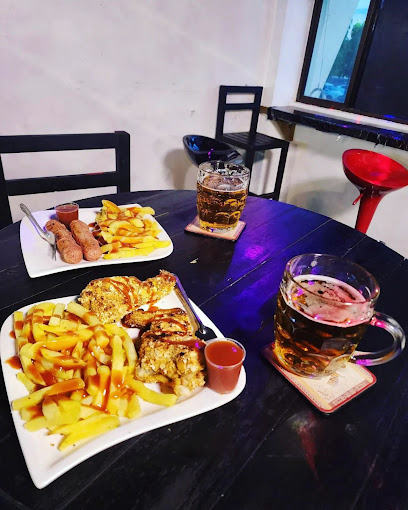
Sakoca
Experience the vibrant nightlife of Suva at Sakoca, a lively bar offering a delightful mix of local flavors and refreshing drinks.
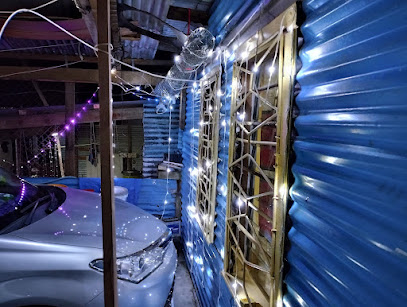
Levuka Club
Discover the vibrant nightlife of Levuka at Levuka Club, where music, dance, and culture unite in an unforgettable experience.
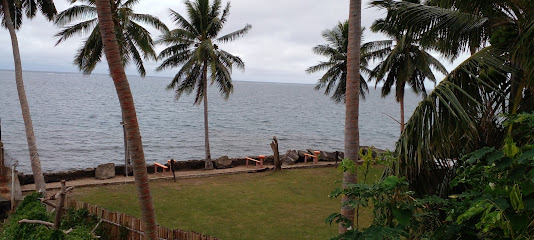
Ocean Island Kava Bar
Experience the unique flavors and tranquil ambiance of Ocean Island Kava Bar in Nasinu, a must-visit for relaxation and cultural immersion in Fiji.
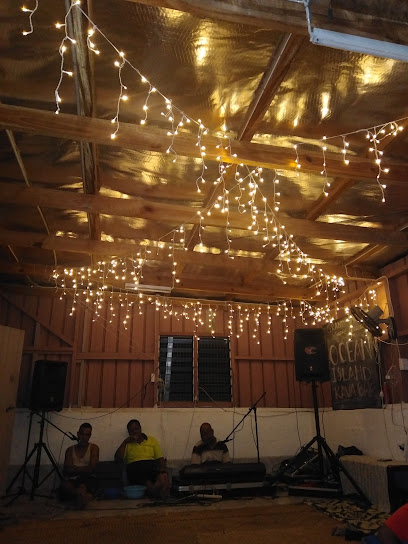
Mataniwai House
Discover the vibrant nightlife and authentic Fijian hospitality at Mataniwai House, a must-visit bar for tourists seeking local flavor.
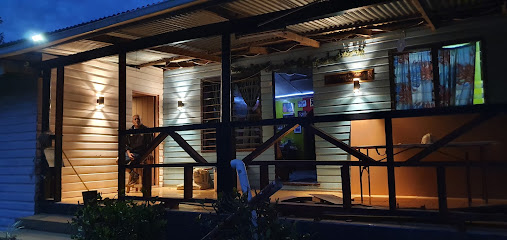
Abbey
Discover the lively atmosphere of Abbey Bar in Lami, a perfect blend of local culture and vibrant nightlife that promises unforgettable experiences.

Yakona Kava Bar
Discover the essence of Fijian culture at Yakona Kava Bar, where relaxation and tradition merge in a serene setting.

Ovalau Club
Experience the vibrant culture and history of Levuka at the Ovalau Club, a social hub where locals and tourists mingle in a welcoming atmosphere.
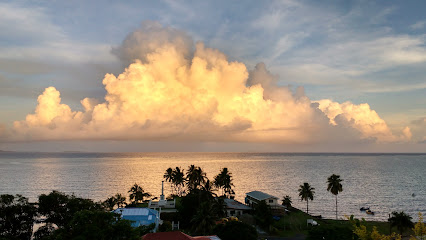
Travel experiences inspired by this city
Explore more travel diariesLocal Phrases
-
- HelloBula
[boo-lah] - GoodbyeMoce
[mo-they] - YesIo
[ee-oh] - NoSega
[seng-ah] - Please/You're welcomeVinaka
[vee-nah-kah] - Thank youVinaka vakalevu
[vee-nah-kah vah-kah-lay-vu] - Excuse me/SorryTulou
[too-loh] - How are you?Kere kere
[kay-ray kay-ray] - Fine. And you?Vinaka. Iko?
[vee-nah-kah. ee-koh?] - Do you speak English?Ko sa vosoti inglese?
[koh sah voh-soh-tee een-gleh-seh?] - I don't understandAu sega kila
[ow seng-ah kee-lah]
- HelloBula
-
- I'd like to see the menu, pleaseAu vinakata me vakaraitaka na menu, yalo vinaka
[ow vee-nah-kah-tah may vah-kah-rye-tah-kah nah meh-noo, yah-loh vee-nah-kah] - I don't eat meatAu sega kana yavusa
[ow seng-ah kah-nah yah-voo-sah] - Cheers!Bula!
[boo-lah!] - I would like to pay, pleaseAu vinakata me volitaki, yalo vinaka
[ow vee-nah-kah-tah may voh-lee-tah-kee, yah-loh vee-nah-kah]
- I'd like to see the menu, pleaseAu vinakata me vakaraitaka na menu, yalo vinaka
-
- Help!Naita!
[nye-tah!] - Go away!Lako yani!
[lah-koh yah-nee!] - Call the Police!Vocia na nodra mataivalu!
[vo-thee-ah nah noh-drah mah-tah-ee-vah-loo!] - Call a doctor!Vocia na daktara!
[vo-thee-ah nah dahk-tah-rah!] - I'm lostAu luvata
[ow loo-vah-tah] - I'm illAu mate
[ow mah-tay]
- Help!Naita!
-
- I'd like to buy...Au vinakata me voli...
[ow vee-nah-kah-tah may voh-lee...] - I'm just lookingAu dua mada ni raica
[ow doo-ah mah-dah nee rye-thah] - How much is it?E vica na ka
[ay vee-thah nah kah] - That's too expensiveSa yawa sara
[sah yah-wah sah-rah] - Can you lower the price?Vosoti mada na caka
[voh-soh-tee mah-dah nah thah-kah]
- I'd like to buy...Au vinakata me voli...
-
- What time is it?E vica na gauna
[ay vee-thah nah gow-nah] - It's one o'clockE dua na gauna
[ay doo-ah nah gow-nah] - Half past (10)E vasagavulu na gauna
[ay vah-sah-ngah-voo-loo nah gow-nah] - MorningYabaki
[yah-bah-kee] - AfternoonYasahasara
[yah-sah-hah-sah-rah] - EveningYaloyalo
[yah-loh-yah-loh] - YesterdayNakua
[nah-koo-ah] - TodayNisa
[nee-sah] - TomorrowMataka
[mah-tah-kah] - 1Dua
[doo-ah] - 2Rua
[roo-ah] - 3Tolu
[toh-loo] - 4Va
[vah] - 5Lima
[lee-mah] - 6Ono
[oh-no] - 7Vitu
[vee-too] - 8Walu
[wah-loo] - 9Siwa
[see-wah] - 10Savusavu
[sah-voo-sah-voo]
- What time is it?E vica na gauna
-
- Where's a/the...?E vei na...
[ay vay nah...] - What's the address?E vei na ituvatu?
[ay vay nah ee-too-vah-too?] - Can you show me (on the map)?Vosoti mada ni vakamacalataki au (e na lomamata)?
[voh-soh-tee mah-dah nee vah-kah-mah-thah-lah-tah-kee ow (ay nah loh-mah-mah-tah)?] - When's the next (bus)?E na gauna ni yabaki (basi) e muri?
[ay nah gow-nah nee yah-bah-kee (bah-see) ay moo-ree?] - A ticket (to ....)E dua na tiketi (ki ...)
[ay doo-ah nah tee-kay-tee (kee ...)]
- Where's a/the...?E vei na...
History of Levuka
-
Levuka, often referred to as the 'Birthplace of Modern Fiji,' was Fiji’s first colonial capital. Established by European settlers in the early 19th century, it became the center of political and economic activity. In 1874, the Deed of Cession was signed in Levuka, marking the beginning of Fiji's status as a British colony.
-
During the mid-19th century, Levuka rose to prominence as a bustling port for whalers. Ships from America, Australia, and Europe docked in its harbor to restock supplies and trade goods. This period saw an influx of diverse cultures and the construction of many of Levuka’s now-historic buildings.
-
In 1882, the capital of Fiji was moved from Levuka to Suva due to Levuka’s geographical limitations and its inability to expand further. Despite losing its capital status, Levuka retained its historical significance and continued to thrive as a cultural and economic hub.
-
In 2013, Levuka was designated as a UNESCO World Heritage Site. This recognition was due to its well-preserved colonial architecture and its role in the history of Fiji and the Pacific region. The town’s unique blend of European and indigenous influences offers a window into the past.
-
Levuka is home to some of Fiji's oldest educational institutions. The first school for indigenous Fijians, Marist Convent School, was established here in 1869. The town also hosted the first public school, Levuka Public School, which opened its doors in 1879.
-
Levuka has always been a melting pot of cultures. The town’s population consists of indigenous Fijians, Europeans, Chinese, and Indians, each contributing to the rich tapestry of Levuka’s cultural heritage. Festivals, religious ceremonies, and communal gatherings are integral to the town’s social fabric.
-
In March 2008, a devastating fire swept through Levuka’s historic waterfront, destroying several buildings. The fire highlighted the vulnerability of the town’s wooden structures and sparked efforts to preserve and restore Levuka’s architectural heritage.
-
Levuka’s economy has evolved from whaling and copra trading to fishing and tourism. The town’s tuna cannery, established in the 1970s, is a significant employer and exporter, contributing to Levuka's ongoing economic resilience.
-
Levuka’s maritime history is celebrated through various cultural practices and festivals. Traditional boat-building techniques and navigation skills have been passed down through generations, maintaining a strong connection to the sea.
-
Levuka boasts numerous architectural landmarks, including the Sacred Heart Church, built in 1858, and the Royal Hotel, the oldest continuously operating hotel in the South Pacific. These buildings offer a glimpse into the town’s colonial past and architectural evolution.
Levuka Essentials
-
Levuka is located on the island of Ovalau in Fiji. The nearest international airport is Nausori International Airport, located near Suva on the main island of Viti Levu. From Nausori, you can take a domestic flight to Bureta Airport on Ovalau. Alternatively, you can take a ferry from Natovi Landing on Viti Levu to Levuka. The ferry ride takes about 1.5 hours. There are also bus and taxi services available from Suva to Natovi Landing.
-
Levuka is a small town, and many of its attractions are within walking distance. For longer trips around the island, local buses and taxis are available. Renting a bicycle can also be a convenient and enjoyable way to explore the area. Car rentals are available but less common due to the town's compact size.
-
The official currency in Fiji is the Fijian Dollar (FJD). Credit cards are accepted in some hotels, restaurants, and shops in Levuka, but it is advisable to carry cash, especially for smaller establishments and markets. ATMs are available in Levuka, but it’s wise to withdraw sufficient cash before arriving on the island.
-
Levuka is generally a safe destination for tourists. However, it is important to take standard safety precautions. Avoid walking alone at night in unfamiliar areas and always keep an eye on your belongings in crowded places. While there are no specific high-crime areas targeting tourists, staying vigilant and aware of your surroundings is always best.
-
In case of an emergency, dial 911 for immediate assistance. Levuka has a local police station and medical facilities available. It is recommended to have travel insurance that covers medical emergencies. For minor health concerns, there are pharmacies in Levuka where you can purchase over-the-counter medications.
-
Fashion: Do dress modestly, particularly when visiting religious sites or local villages. Avoid wearing revealing clothing. Religion: Do respect local customs and traditions. When visiting churches, dress conservatively and remove your hat. Public Transport: Do be respectful and patient. Give up your seat to elderly passengers. Greetings: Do greet people with a smile and a friendly 'Bula!' (hello). A handshake is also common. Eating & Drinking: Do try local dishes and accept food offerings graciously. Don’t refuse hospitality, as it is considered impolite.
-
To experience Levuka like a local, visit the Levuka Market where you can buy fresh produce and traditional Fijian goods. Engage with the locals, who are often friendly and willing to share stories about the town’s history and culture. Don’t miss visiting the historic sites such as the Levuka Town Hall and the Sacred Heart Church. For a unique experience, take a walk along the old colonial buildings and enjoy the scenic views of the coastline.
Nearby Cities to Levuka
-
Things To Do in Nausori
-
Things To Do in Suva
-
Things To Do in Rakiraki
-
Things To Do in Savusavu
-
Things To Do in Labasa
-
Things To Do in Ba
-
Things To Do in Lautoka
-
Things To Do in Nadi
-
Things To Do in Sigatoka
-
Things To Do in Kolovai
-
Things To Do in Vava'u
-
Things To Do in Nuku'alofa
-
Things To Do in Ha'apai
-
Things To Do in Pangai
-
Things To Do in Foa











